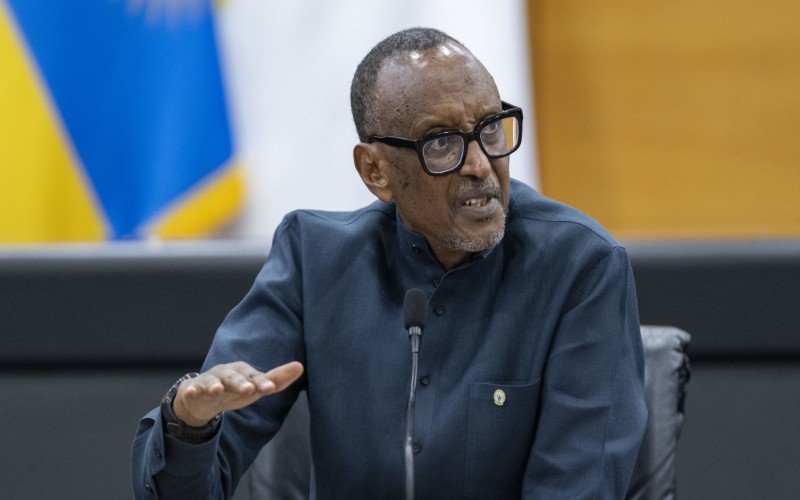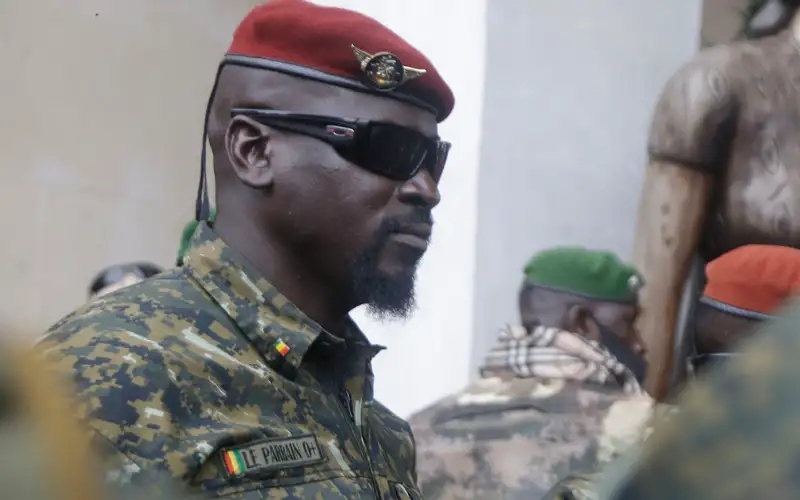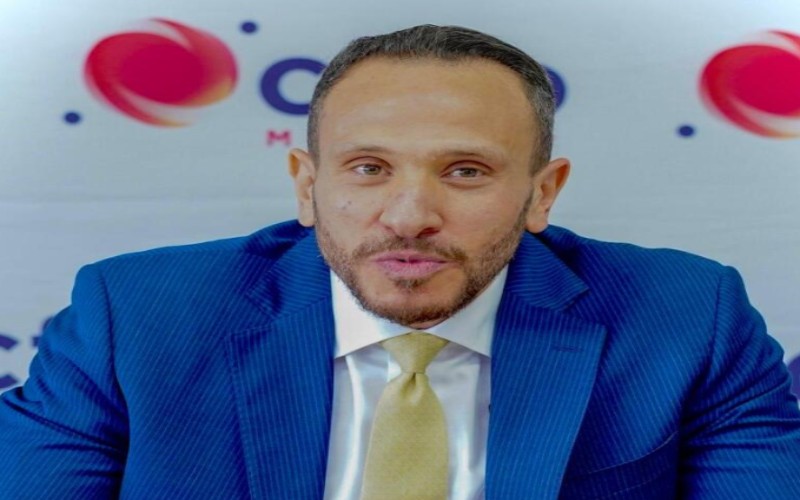Doctors Without Borders report exposes devastating impact of violence in Sudan

According to MSF, responsibility for these atrocities lies with both the Sudanese Armed Forces (SAF) and the Rapid Support Forces (RSF), along with their allies.
Doctors Without Borders (MSF) today released a report highlighting the severe impact of conflict on civilians in Sudan.
Titled ‘A War on People – The Human Cost of Conflict and Violence in Sudan,’ the report details the devastating toll on civilians, hospitals, markets, and homes.
More To Read
- Mass displacement, trafficking fears deepen crisis in Sudan’s El Fasher
- Sudanese army says it repelled paramilitary forces' attack after unilateral truce declaration
- Sudan ceasefire bid in limbo as army chief Abdel Fattah rejects Trump proposal while RSF agrees
- Sudan’s RSF declares three-month ceasefire amid backlash over civilian attacks
- IGAD leads new push for Peace in Sudan as regional and global partners back three-step plan
- Egypt rejects any attempts to divide Sudan: FM
It adds that the war has resulted in widespread violence against communities, including indiscriminate killings, sexual violence, and torture.
Sexual and gender-based violence is rampant, particularly in Darfur, where MSF reports that 90% of survivors treated in Chad were victimized by armed perpetrators.
According to MSF, responsibility for these atrocities lies with both the Sudanese Armed Forces (SAF) and the Rapid Support Forces (RSF), along with their allies, since the conflict's onset in April 2023.
In one of the hospitals it supports, Al Nao Hospital in Omdurman, Khartoum State, 6,776 patients were treated for injuries caused by violence between August 15, 2023, and April 30, 2024. The number translates to an average of 26 people per day.
Healthcare workers have witnessed harrowing scenes following shelling in residential areas, with patients arriving with severe injuries, including amputations.
"MSF has treated thousands of patients for conflict-related injuries across the country, most for injuries caused by explosions, gunshots, and stabbings,” the report said.
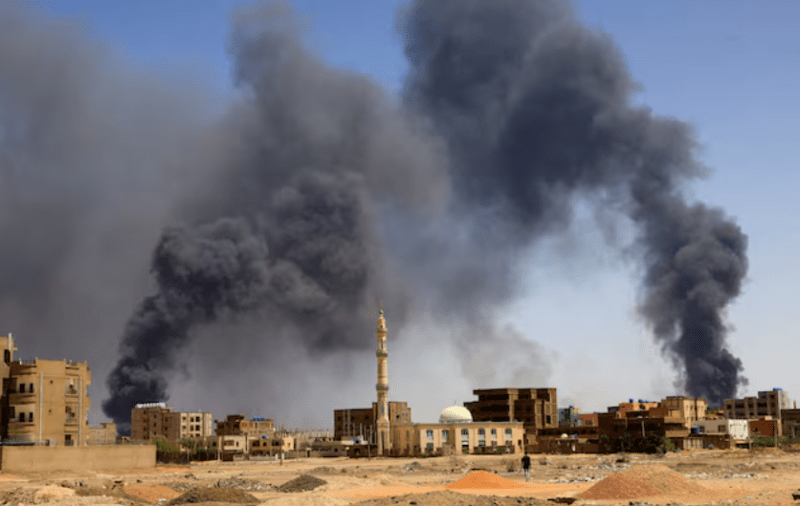 A man walks while smoke rises above buildings after aerial bombardment, during clashes between the paramilitary Rapid Support Forces and the army in Khartoum North, Sudan, May 1, 2023. (Reuters)
A man walks while smoke rises above buildings after aerial bombardment, during clashes between the paramilitary Rapid Support Forces and the army in Khartoum North, Sudan, May 1, 2023. (Reuters)
Ethnic violence is also pervasive, with reports from Nyala, South Darfur, detailing targeted attacks against non-Arab ethnic groups. MSF has documented over 60 incidents of violence against its staff and facilities, complicating humanitarian efforts.
Despite attempts to provide aid, bureaucratic hurdles often hinder the delivery of essential medical care to those in need.
Vickie Hawkins, MSF General Director, stresses the urgent need for all parties to cease attacks on civilians and infrastructure and to facilitate expanded humanitarian aid.
“We call on all warring parties to facilitate the scale-up of humanitarian aid and, above all, to stop this senseless war on people by immediately ceasing attacks on civilians, civilian infrastructure, and residential areas,” said Vickie Hawkins.
In Western Darfur, the conflict has taken on an ethnic dimension, with the Masalit tribe bearing the brunt of targeted violence, including forced displacement, unlawful killings, and other brutal acts reportedly carried out by the RSF and affiliated groups.
In June 2023, MSF teams in Chad treated over 800 patients with war-related injuries in just three days, the majority being Masalit individuals who had fled El Geneina and its surrounding areas.
A retrospective mortality survey conducted by MSF between August and September 2023 in three Sudanese refugee camps in Chad revealed significantly higher death rates across the camps. For instance, the Ourang 1 camp saw mortality rates increase twentyfold from April 2023 onwards, peaking in June, compared to rates before the crisis.
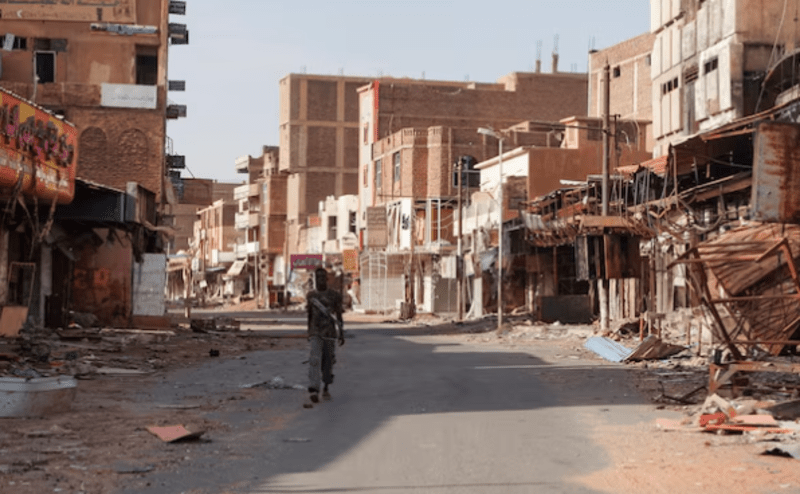 A member of the Sudanese Armed forces walks between damaged buildings, almost one year into the war between the Sudanese Armed Forces and the paramilitary Rapid Support Forces (RSF), in Omdurman, Sudan, April 7, 2024. (Reuters)
A member of the Sudanese Armed forces walks between damaged buildings, almost one year into the war between the Sudanese Armed Forces and the paramilitary Rapid Support Forces (RSF), in Omdurman, Sudan, April 7, 2024. (Reuters)
Additionally, an MSF survey conducted in South Darfur in February–March 2024 highlighted elevated crude mortality rates, particularly in north Nyala, where conflict has doubled the crude mortality rate (CMR), especially during intense fighting in October 2023.
The consequences of more than a year of widespread conflict in Sudan have been devastating for the health and well-being of its people.
The physical and psychological wounds inflicted by violence have been compounded by the collapse of the healthcare system and the inadequate international humanitarian response.
MSF teams continue to care for patients dying from preventable complications because they were unable to reach healthcare facilities in time or afford available medicine.
According to the International Organisation for Migration (IOM), more than 2.2 million people have fled to neighbouring countries since the war began, while nearly 7.8 million have sought refuge within Sudan. An additional 2.8 million individuals were already displaced due to previous conflicts within the country.
Top Stories Today



